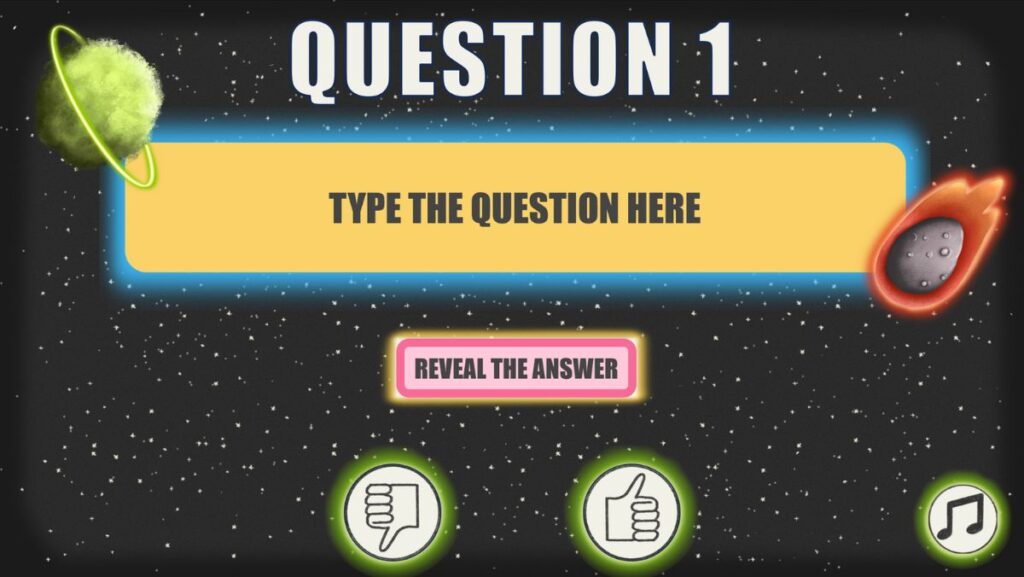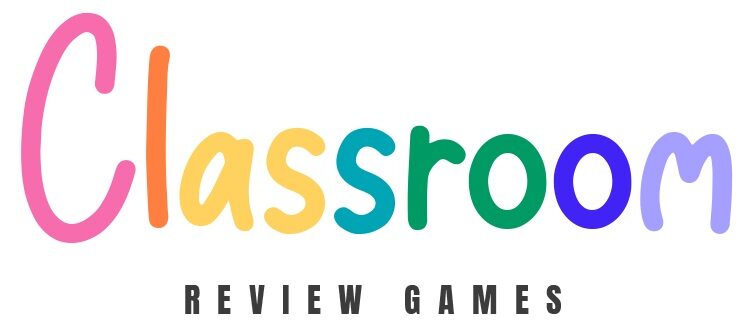24 Vocabulary Review Games for Students
1. Pictionary
Materials Needed:
- Whiteboard and markers or paper and pencils
- Cards with vocabulary words
How to Play:
Players draw the vocabulary word on their card without using letters or verbal clues, while their teammates try to guess the word. This game encourages creative thinking and helps solidify the understanding of new vocabulary.
2. Bingo
Materials Needed:
- Bingo cards with vocabulary words
- Markers or chips
- A list of definitions, sentences, or synonyms for the teacher to call out
How to Play:
Instead of numbers, Bingo cards feature vocabulary words. The teacher calls out definitions, sentences using the words, or synonyms, and students mark their cards if they have the matching word. The first student to get a row, column, or diagonal and shout “Bingo!” wins.
3. Charades
Materials Needed:
- Cards with vocabulary words
How to Play:
Players act out the vocabulary word on their card without speaking, while their teammates try to guess the word. Charades help students associate words with actions and contexts, deepening their understanding.
4. Categories
Materials Needed:
- A list of categories (e.g., animals, food, emotions)
- A timer
How to Play:
Students must list as many vocabulary words as possible within a given category and time limit. This game enhances rapid recall of vocabulary and encourages students to categorize words, aiding memory retention.
5. Crossword
Materials Needed:
- Crossword puzzles with definitions or clues for vocabulary words
How to Play:
Students complete the crossword puzzles by solving the clues, which are based on the vocabulary words they’ve been learning. This game is excellent for reinforcing word meanings and spellings.
6. Letter Scramble
Materials Needed:
- Cards or a board with scrambled letters of vocabulary words
How to Play:
Students unscramble the letters to form vocabulary words. This game is useful for reinforcing spelling and recognizing word patterns.
7. Memory
Materials Needed:
- Cards with vocabulary words on one set and their definitions, synonyms, or sentences on another set
How to Play:
Spread out all cards face down. Students take turns flipping two cards at a time, trying to find matching word-definition pairs. This game enhances memory and helps students make connections between words and their meanings.
8. Checkers
Materials Needed:
- A checkers board with vocabulary words on each square
- Checkers pieces
How to Play:
Each time a player moves to a square, they must use the vocabulary word in a sentence correctly. If they succeed, they make their move; if not, they lose their turn. This adds an educational twist to the classic game of checkers.
9. Flyswatter
Materials Needed:
- A whiteboard or large paper with vocabulary words written on it
- Flyswatters
How to Play:
The teacher calls out a definition, synonym, or sentence with a missing word, and students race to swat the correct vocabulary word on the board. This game is energetic and helps students quickly associate words with meanings.
10. Four Corners
Materials Needed:
- Four signs, each with a different vocabulary word, placed in four corners of the room
How to Play:
The teacher reads a definition, synonym, or sentence using one of the words. Students move to the corner with the word they believe matches the clue. This game gets students moving and thinking about word meanings.
11. Fun Vocabulary Game
Materials Needed:
- A list of creative prompts or challenges involving vocabulary words (e.g., “Create a story using 5 vocabulary words”)
How to Play:
Students complete the challenges or prompts using the vocabulary words, encouraging creative use of language and deeper engagement with the words.
12. Guess My Word
Materials Needed:
- Cards with vocabulary words
How to Play:
This game is similar to our Password game. Without revealing their word, a student gives clues or definitions, and classmates try to guess the word. This game reinforces understanding of word meanings and encourages descriptive language skills.
13. Hangman
Materials Needed:
- A whiteboard or paper
- A list of vocabulary words
How to Play:
Play the classic game of Hangman using vocabulary words. This game is excellent for spelling practice and can be made more challenging by requiring the use of the word in a sentence once it’s guessed.
14. Hot Seat
Materials Needed:
- Cards with vocabulary words
How to Play:
A student sits with their back to the board where a vocabulary word is written. Their teammates give clues without saying the word, and the student in the hot seat guesses the word. This game encourages teamwork and creative thinking about word usage.
15. Missing Words
Materials Needed:
- Sentences with missing vocabulary words
- A list of the vocabulary words to choose from
How to Play:
Students fill in the blanks in sentences with the appropriate vocabulary words, reinforcing word meanings and contextual usage.
16. Word Association
Materials Needed:
- A starting vocabulary word
How to Play:
Students take turns saying the first word that comes to mind associated with the previous word. This game enhances lexical retrieval and encourages students to think about word relationships.
17. Space Ball Vocabulary

Materials Needed:
- Space ball game template with vocabulary words and definitions
- A trash can or basket
- A small ball or crumpled paper
How to Play:
Students answer vocabulary questions or use words in sentences to earn shots at the basket. This game combines physical activity with vocabulary review, making learning more dynamic.
18. Circle Rotation
Materials Needed:
- Cards with vocabulary words
How to Play:
Students sit in a circle, and a card is passed around. When the music stops, the student holding the card must use the word in a sentence. This game encourages quick thinking and contextual word use.
19. Dice Roll
Materials Needed:
- A dice
- A list of vocabulary words with corresponding activities for each number (e.g., 1 = define the word, 2 = use it in a sentence)
How to Play:
Students roll the dice and perform the activity associated with the number for a selected vocabulary word. This game introduces variety and chance into vocabulary practice.
20. Four in a Row
Materials Needed:
- A grid with vocabulary words
- Markers or pieces for two players
How to Play:
Players take turns choosing a word and using it in a sentence correctly to place their marker on that square. The first to get four in a row wins. This game encourages strategic thinking and sentence construction.
21. Simple List
Materials Needed:
- A theme or category
- A timer
How to Play:
Students list as many vocabulary words as possible related to the given theme or category within a set time limit. This game is great for rapid recall and thematic vocabulary reinforcement.
22. Synonyms
Materials Needed:
- Cards with vocabulary words
- Cards with synonyms of those words
How to Play:
Students match vocabulary words with their synonyms, deepening their understanding of word meanings and expanding their synonym vocabulary.
23. Taboo
Materials Needed:
- Cards with vocabulary words and a list of “taboo” words that cannot be used in descriptions
- How to Play:
Players describe a vocabulary word without using the “taboo” words, while teammates guess the word. This game challenges students to think creatively about how to convey word meanings.
24. Vocab Swap
Materials Needed:
- Sentences with a highlighted vocabulary word
- A list of new vocabulary words to swap into the sentences
How to Play:
Students replace the highlighted word in each sentence with a new vocabulary word that fits the context, encouraging thoughtful consideration of word usage and meanings.
